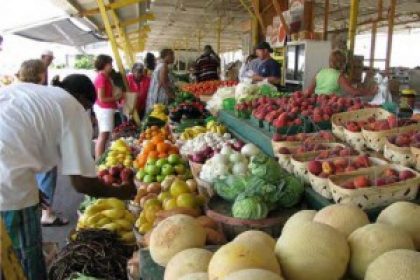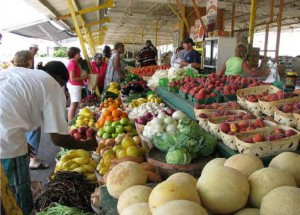
 In July 2011, a listeriosis outbreak spread across 28 states. By the time it ended, 143 people had been hospitalized and 33 people had died. The culprit was cantaloupe contaminated with the bacterium Listeria. Earlier that year, President Obama had signed into law the Food Safety Modernization Act (FSMA) aimed at nipping such food-related outbreaks in the bud. Since then, the Food and Drug Administration (FDA) has been working frantically to draft regulations to implement FSMA.
In July 2011, a listeriosis outbreak spread across 28 states. By the time it ended, 143 people had been hospitalized and 33 people had died. The culprit was cantaloupe contaminated with the bacterium Listeria. Earlier that year, President Obama had signed into law the Food Safety Modernization Act (FSMA) aimed at nipping such food-related outbreaks in the bud. Since then, the Food and Drug Administration (FDA) has been working frantically to draft regulations to implement FSMA.
In theory, FSMA seems like a good idea—who could argue against food safety, especially in light of outbreaks like the one we experienced in 2011? In practice, however, the FDA’s draft regulations started to look as frightening as the illnesses they were meant to combat. Two of the rules are particularly troubling for farmers. The Produce Safety Rule creates standards for how farms grow produce. The Preventive Controls Rule regulates how facilities process raw produce. These two rules threatened the viability of thousands of smaller farms across New England. Why? Because the draft rules were a one-size-fits-all model seemingly tailored to industrial-scale, monoculture produce operations out West. Diversified farms faced heavy compliance costs for safety measures that undermined on-farm conservation practices and, if anything, risked making our food more sterile and more dangerous.
After the FDA issued the draft rules, tens of thousands of farmers and farm-advocacy groups sent comments urging the FDA to revise the draft rules. In a rare move, the FDA agreed. The people spoke up, and the government listened. In September of this year, the FDA released supplemental drafts of the Produce Safety and Preventive Controls rules. Fortunately, the FDA addressed most of the concerns of farms throughout New England.
Now, we need you to comment—to tell the FDA to keep those changes in the final versions of the rules. Learn about both rules and how to comment at the National Sustainable Agriculture Coalition’s FSMA Action Center. We have until December 15 to comment. Please let your voice be heard. Together, we can ensure that our produce is safe to eat and that our local family farms can afford to grow it.
Ben Tettlebaum is a Rhodes Fellow and attorney with Conservation Law Foundation (CLF) in Portland, Maine.




